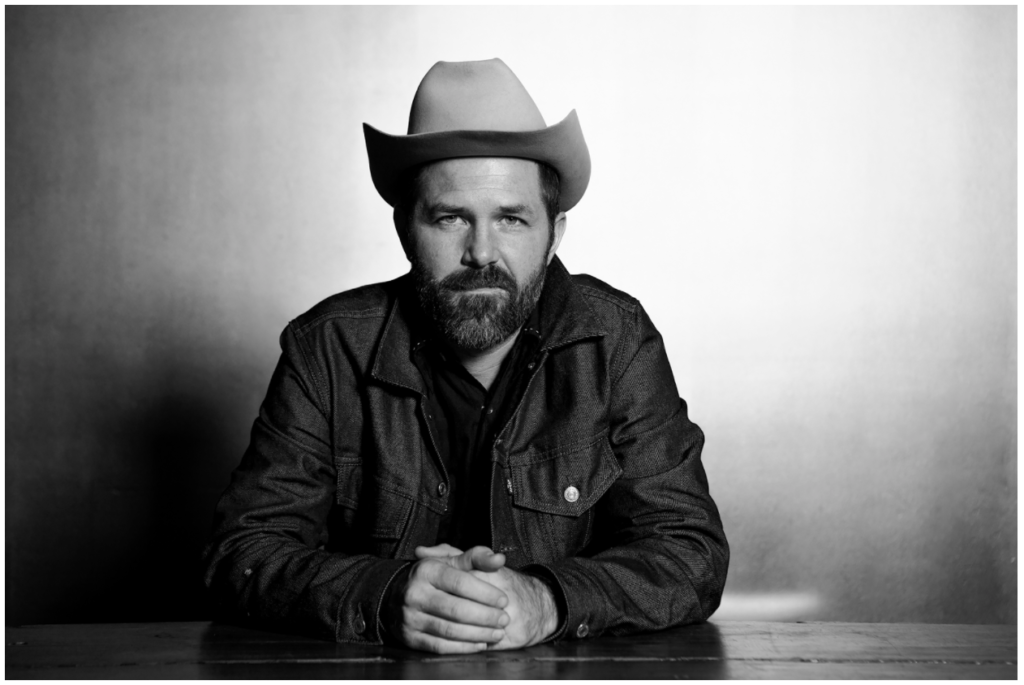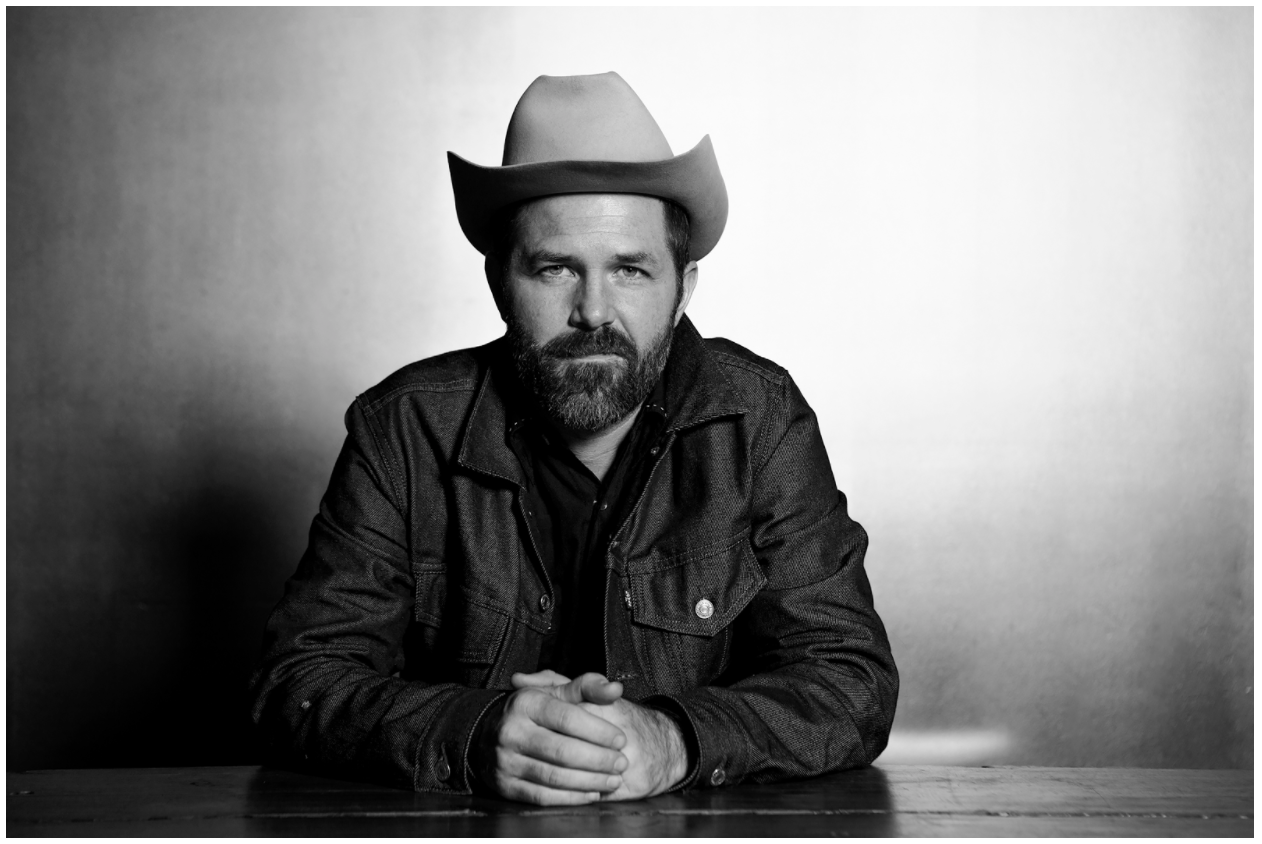Jeffrey Foucault Interview: Tea and Tobacco
Jeffrey Foucault is playing a limited number of dates this winter and spring. It’s a tour he’s calling “Stay Home and Go Broke.” Pretty catchy. But those of us in the Northeast get the chance to hear him in some really lovely, intimate listening rooms at the end of February (tour dates here) and he’ll be in Wisconsin in April. We got to chat with him about how his songs from the incredible 2015 album Salt As Wolves have stretched out on the road, his connection with drummer Billy Conway, and what success really means.

RLR: In previous interviews, you’ve said that Salt As Wolves was recorded pretty quickly–some songs it was the third time you’d played them with the band. How have the songs evolved, or has your relationship evolved, since that recording and have any surprised you as you’ve had them out on the road for the past 18 months or so?
JF: You don’t learn the songs til you play them live for a while, and some become pretty reliable. Some start out reliable, but then you lose the thread and have a difficult time accessing what you had. They come and go but there are some that are night to night reliable.
It’s almost always Billy [Conway] and I, although we’ll be doing a trio on this next run. Billy and I have a conversational approach. We figure it out night to night, putting in different stops and accents. When I’m the only one holding a guitar, the way you treat a solo is a little different.
Those tunes [on Salt As Wolves] were satisfying to get down quickly. They’re simple songs, sort of. I wrote them with a degree of simplicity, especially those modal blues ones. The form is simple enough that there’s a lot of room for variation – the tempo, where I’ll set the tremelo. They breathe really nicely.
I tend to write all the time, but I finish songs when my back’s to the wall. I have to book studio time to finish songs.
JF: It’s meant everything to me. I use Billy as a straight man. Night to night I make up crazy stories about him, like he’s a deaf mute and he plays by feeling the vibration on the drums. Not too long ago I made up a story that we’d met on a ranch in Wyoming, and he was one of the dudes on the ranch; he got tangled up by a rope and then dragged by a horse, and I lassoed the horse and saved his life.
But the truth is that Billy’s the one who saved my life. I felt like I had come the end of what I was doing, traveling solo out on the road. I was telling my daughter the other day, because she’s started playing the ukulele, learning music’s not really about practicing. If you’re lucky, it’s like a story that you never get to the end of and you always want to come back to. I felt painted in a corner by my own habits of mind, and habits on the road, and my approach. I don’t want to go out and give a rote performance every night of things I know how to do. And there are things that are hard when you’re solo. You know, like punchlines on the road, when you’re in a group, shit that goes wrong is funny. When it’s just you, and shit goes wrong, it’s just sad, and there’s no one to share it with. Billy and I had played in studio and I was going to do a radio show solo in Bozeman and said to Billy why don’t you come down with me and we’ll see what happens. He really listens and strives to find opportunities to not play. And that’s rare, especially rare for a drummer. He just wants to serve the song.
Billy played on an album I put out in 2010, Horse Latitudes. And I was late, I only got the demos to the band ten days before we were going in the studio. There’s a song on that album called “Tea and Tobacco”; it’s a lopey, quiet little ballad. He listened to the demos and said he was so excited, he couldn’t wait to play on that song, and in that same moment realized that I wasn’t going to ask a drummer to play on that song, that I was going to play it solo. Years went by, and he’d say “How come you never play Tea and Tobacco?” and it became clear he really wanted to play it. So I wouldn’t play it on principle – I’d put it on the set list and then replace it.
We were on this run together in 2012 and it was a lot of motion; the tour was planned out, but on paper it didn’t look as hard as it was. We were in Milwaukee ten or twelve days before Christmas and it was right around Billy’s birthday. So I didn’t write “Tea and Tobacco” on the set list, but then closed with it, and I told the audience this story about the song, and that we were going to do it for Billy and his birthday. So I started playing it … and Billy didn’t play. He just listened, up until the very last note, when he hit the cymbal. And that’s Billy: total restraint and timing and elegance.
RLR: No Depression recently named you as one of five breakout artists in 2017. It struck me a little funny, given that you’ve got a pretty loyal fanbase already and have been lauded by the New York Times and NPR. What, at this stage in your career, would a breakout look like to you?
JF: It’s perfectly nice and I’m not going to complain about it. But I don’t pay a lot of attention to it.
What do people consider success in this work–the Grammys? Hearing your song on a TV show? What the markers of success are for normal civilians don’t really apply in this job.
For years, I would go home to Wisconsin, after touring the country, and playing overseas. And it was clear that my family didn’t get it. My sister in-law would say, “There’s a new coffee shop in town, and they have tanning there, and they have live music sometimes–maybe you want to give them a CD.” And I’d say, “That’s really nice of you to think of me,” but in the back of my mind, I’m thinking, “You don’t really know what I do.”
You know, I would like to work less and make more money. If I sold a lot more records, that would happen. The truth is, it’s ingrained in the American mind, like in Death of a Salesman, that at some point you’ll strike it rich and it’s easy street. There’s a natural sense of justice when it comes to music for people to think “I think this is great and I wish other people thought this was great,” especially when you turn on the radio and it’s all so bad.
I do worry more about the story, like we were talking about before, so I’m much more worried about what the next record is going to sound like. And you know, I’d like to burn less jet fuel; I’d love to travel by train, and it’s a pity we don’t have train service in this country, even though we did until about 1930. But I have a car that runs and a mortgage we can afford. And there’s enough creative tension in the sense that we don’t have everything, and sometimes we’re broke for a while and don’t know where the money’s gonna come from – but that’s how you stay connected and don’t turn into a fool.
RLR: You recently stopped using twitter and stepped back from social media – can you talk about what prompted that decision for you?
JF: I started working with a manager when last record came out, and he’s great, a real smart guy, and I promised him I would spend a year on social media and stay on top of it. I’m adroit enough to use these platforms, but don’t like spending the time on them, especially after Donald Trump used a tool like twitter to gain power. The kind of things promoters used to do – contacting local newspapers and getting the word out about concerts are not available anymore. Now artists are supposed to do those things on their own. There was a time when I would fly across the country for a show and maybe drop a postcard to a friend that I was coming, but fans would show up because of the notice in the local paper.
Inauguration Day seems like the right day to be all done with Twitter. So long folks.
— Jeffrey Foucault (@JeffreyFoucault) January 21, 2017
I’ve had the same opinion since I first learned about twitter, which is: what a horrendous pile of nonsense. It allows people to self-reinforce their ideas, it sends people into the corner they were already in. And people say it’s like the cafe society, but that’s a crock of shit; in the cafe society, people had to look at each other. On New Year’s Day, I deleted all that from my phone – social media, The New York Times, The Guardian, all of it, so I could spend more time paying attention to the things that make my job possible. I can’t get up in the morning and immediately look at my phone and still do my job.
There are advantages to twitter that I do see: you can learn about things fast, with unfiltered news, and it makes sense in that context. But in general, it’s one more version of pleasing ourselves to death. There was a brief window when the internet was something other than TV, but it got swallowed by TV. It’s just interactive enough to be addictive. It’s going to change how human beings interact and think and I can’t see how it changes us for the better. And, you know, it’s all well and good til the power goes out, so I’d like to keep my wits about me.
I’ll be excited to see Jeffrey at The Rockwell in Somerville on February 26. He’s also playing in Pittsfield, MA at The Colonial Theater, at The Word Barn in Exeter, NH and The Parlor Room in Northampton.

